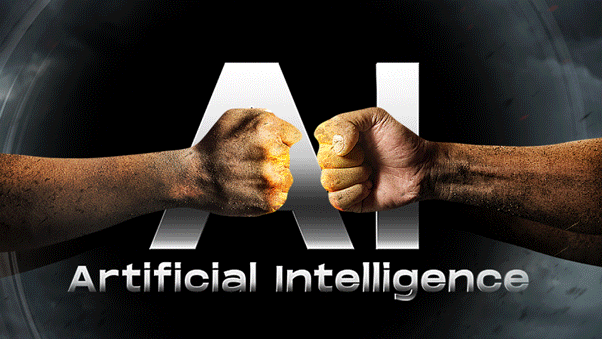NEWYou can now listen to Fox News articles!
Editor’s note: This essay is adapted from the new, New York Times bestselling book, “You Will Own Nothing: Your War with a New Financial World Order and How to Fight Back” by Carol Roth.
The use of technology, including artificial intelligence (AI), to infringe on individuals’ unique physical and related characteristics is gaining awareness and some much-needed pushback.
In Hollywood, SAG-AFTRA and the WGA, the unions representing actors and writers, respectively, are worried about AI freeriding on an individual’s work and usurping their biometrics and individuality, striking to prevent such outcomes and preserve individual rights in the digital sphere.
In Kenya, the country has halted startup Worldcoin, whose website proclaims “It is designed to be the world’s largest human identity and financial network,” suspending their gathering data via iris scans.
But much more needs to be done.

AI or artificial intelligence might be able to store your memories on a chip. But who owns you after you are gone? (istock)
As tech gains even more scale and the elite seek additional control and power, the coming together of the two will lead to myriad technologies that supplant and suppress rights. Digital IDs and digital currencies and their ties to social credit create new mechanisms to gather and store information. And, with that, the opportunity to leverage that information.
Think about the control over your information.
Certainly, for decades, companies have had access to, used, and even sold certain pieces of data. They may have known your name, address, and maybe your phone number and marital status. They may have asked for some demographic information as well, which was optional, when you registered for a warranty, for example.
Then, companies started asking for your email. Nowadays, what don’t companies — particularly technology companies — know about you?
As time goes on, and you license and rent more technology, using palm and fingerprint scanners for convenience or connect personal data to digital wallets and so on, what ends up happening with the unique characteristics, talent, biometrics and more that make you who you are?
What happens to your thoughts?
Imagine a future world. You have been in a terrible car accident. The paramedics arrived, but you are losing too much blood. It doesn’t look like you can be saved. The paramedics contact your next of kin and they give the ok. The paramedics reach around and dislodge a chip from your skull and return it to your family.
Your family looks at your wishes and locates the new body you have chosen for yourself. Your chip, which connects to a backup downloaded copy of your brain, gets inserted into a new body. You come back to life, barely remembering the accident. You also look great in your new robotic body, which, per your choice, is about 20 pounds thinner and three inches taller.

Dio used voicemails left by her boyfriend Billy to recreate his voice using AI software. (Mia Dio)
Of course, the backup information on the chip is stored with one of the major technology firms.
Now imagine that that tech firm doesn’t like the kind of things that you had been writing about before your accident. And the government really doesn’t like the kinds of things that you had been writing about before the accident. Then what?
When you own a pet, you may put a chip in it to control your ownership.
Chips show ownership. What happens when they come to identify humans? Who owns whom? Can a backup be made of your thoughts — in whole or in part — and given to another being?

An AI-generated image of the character Kai from the film adaption of the YA book “Calculated.” (OneDoor Studios )
Can a tech company or government modify your thoughts for “wrongthink”?
The loss of autonomy is the pinnacle of owning nothing and giving up freedom.
We know that robots have been created to change productivity. Ultimately, they make take more and more livelihoods. Do they eventually take your mind and your soul?
This is not a farfetched notion or an excerpt from a sci-fi novel.
CLICK HERE FOR MORE FOX NEWS OPINION
Elon Musk’s Neuralink is already working on ways to connect your brain to computers.
At Brown University, technology dubbed “neurograins” are being developed. These are “a system that uses dozens of silicon microchips to record and transmit brain activity to a computer … designed to be sprinkled across the brain’s surface or throughout its tissue to collect neural signals from more areas than currently possible with other brain implants.”i
It’s a slippery slope where tech is involved when it comes to ownership and rights, and we are sliding downward at an accelerated pace.
Chips show ownership. What happens when they come to identify humans? Who owns whom? Can a backup be made of your thoughts — in whole or in part — and given to another being?
CLICK HERE TO GET THE FOX NEWS APP
We need to protect our natural, individual rights, and preserve the freedoms that go along with them, in this new digital age and space.
Data about you is valuable and everyone wants to exploit it and ultimately, your individuality. We need to push back now, in these early stages, before we lose who we are and our humanity.
CLICK HERE TO READ MORE FROM CAROL ROTH
